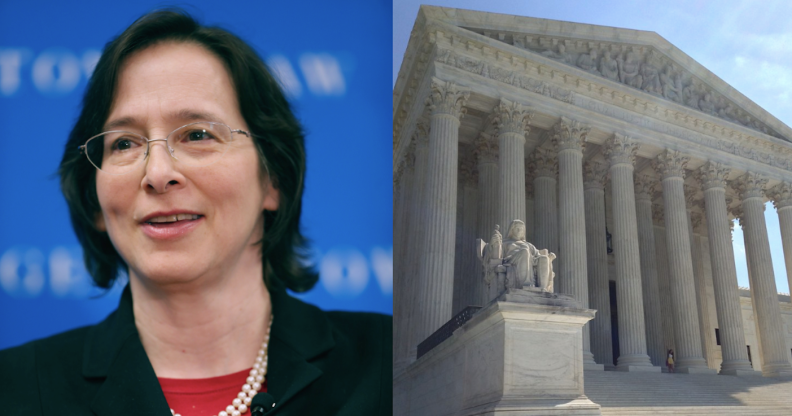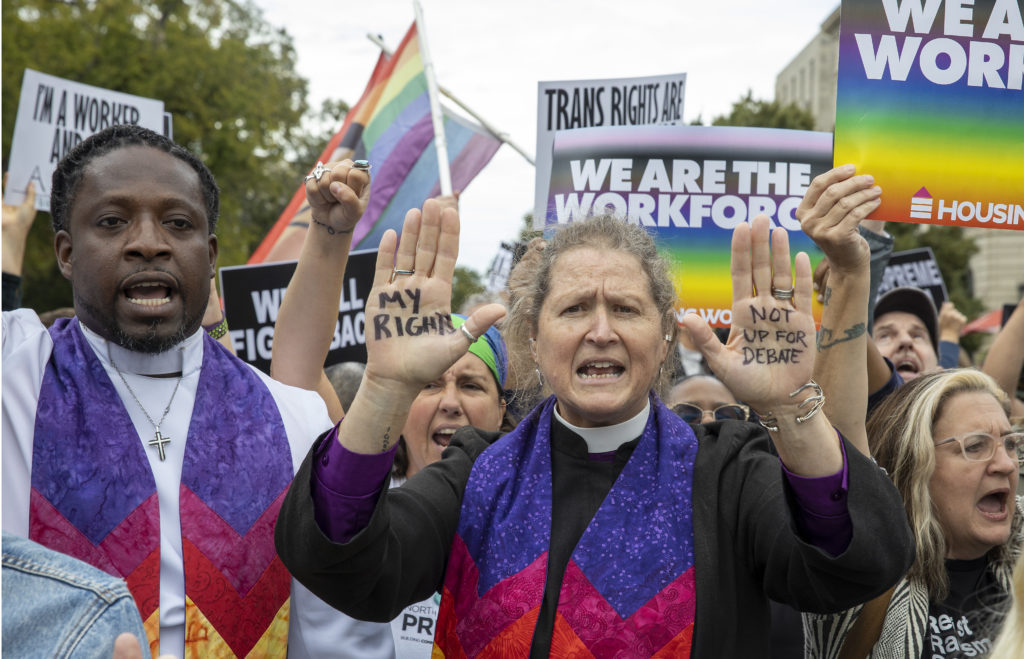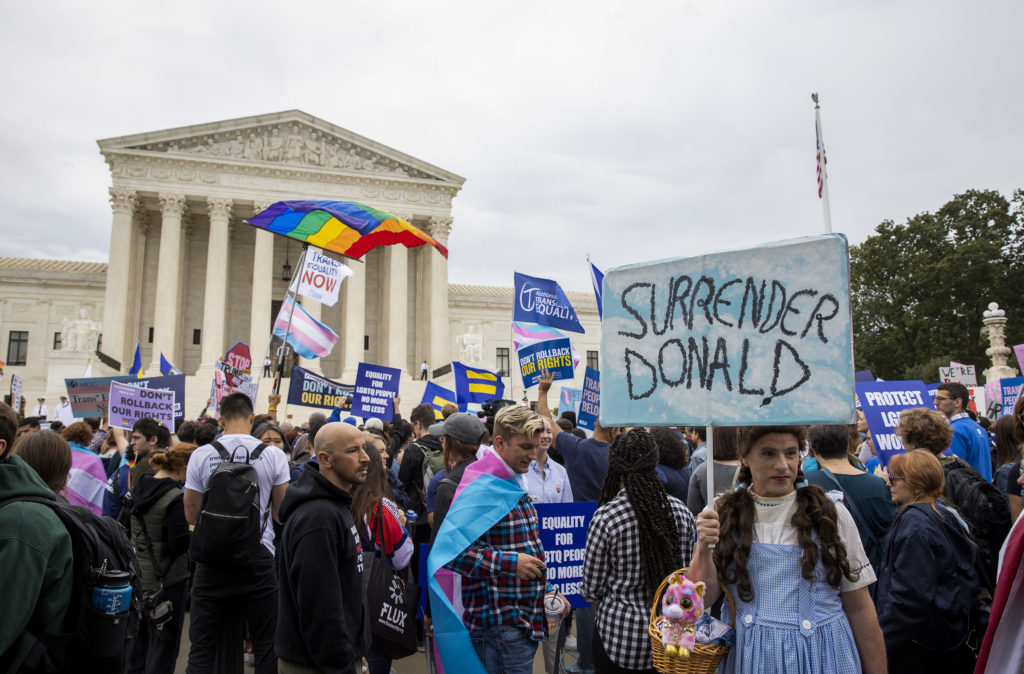Law professor uses sobering logic and reason before Supreme Court to argue in favour of LGBT employment protections

Pamela Karlan, the counsel representing two gay men in the Title VII Supreme Court case (Chip Somodevilla/Getty)
Supreme Court judges were left speechless by an incredible opening argument from Stanford law professor Pamela Karlan in favour of legal protections for LGBT+ people.
The five-hour hearing on October 8 will ultimately determine whether LGBT+ people are entitled to legal protections under Title VII of the Civil Rights Act of 1964.
This law prohibits employers from discriminating against employees on the basis of sex, race, colour, national origin and religion. The plaintiffs argued that the reference to “sex” should apply to sexual orientation and gender identity.
Karlan was representing the consolidated cases of two gay men who were fired from their jobs, allegedly because of their sexuality.
Addressing the judges, she began: “When an employer fires a male employee for dating men but does not fire female employees who date men, he violates Title VII.
“The employer has, in the words of Section 703(a), discriminated against the man because it treats that man worse than women who want to do the same thing. And that discrimination is on the basis of sex.”

Protesters block the street in front of the Supreme Court on October 08, 2019 in Washington, DC. (Tasos Katopodis/Getty)
She clarified that the adverse employment action was based on the male employee’s “failure to conform to a particular standard about how men should behave; namely, that men should be attracted only to women and not to men”.
The Trump administration’s position is that discrimination against LGBT+ people is legal, because lawmakers never considered gender identity or sexuality when passing Title VII in 1964, so neither of these are protected by the “sex” clause in the law.
The clause would therefore need to be updated to include LGBT+ protections – a job for Congress, not Supreme Court judges.
Karlan contended that the statute does not need to be updated by the legislature to include sexual orientation, but rather that it should be read and applied exactly as written.

A Judy Garland lookalike joins LGBT+ protesters in front of the Supreme Court (Tasos Katopodis/Getty)
Justice Ruth Bader Ginsburg asked Karlan how she would answer the argument that legislators in 1964 did not intend “sex” to mean “sexual orientation”, as homosexuality was labelled as an illness at the time.
Karlan acknowledged this, but countered that it was the era of Mad Men, when Congress would not have recognised sexual harassment in the way we do now – but courts now recognise this to be covered by Title VII nonetheless.
To avoid “the burden of updating old statutes”, she said, Title VII should now encompass sexual orientation discrimination, as befits our new understanding of sexuality.
The Supreme Court is expected to announce its critical ruling on Title VII later this year.

